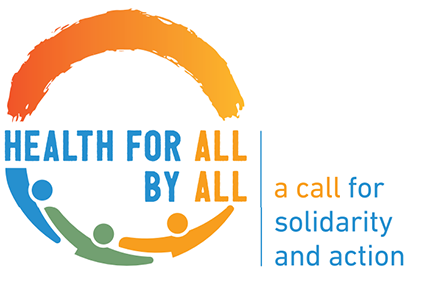Since the beginning of the COVID-19 pandemic, health systems across the Eastern Mediterranean Region have been responding with the support of WHO. Below we highlight some of the many success stories from around the Region so far. Our regional vision of Health For All By All calls for solidarity and action. The response to COVID-19 has demonstrated that only through working and acting together can we build resilience to overcome the challenges we share.

As COVID-19 continues to challenge Pakistan’s health system, reinstating essential health services such as immunization and life-saving maternal care is vital. WHO, through the UHC Partnership, together with its many partners such as UNICEF, UNFPA, UNAIDS, World Bank and USAID, have collaborated to prepare an action plan to support the Government in ensuring the continuity of essential diagnostic, treatment and prevention services, while protecting the safety and wellbeing of the health workforce and patients.
The ability to rapidly detect, trace, track and test cases is being key to an effective pandemic response. To detect suspected cases of COVID-19, WHO supported the massive expansion of the existing electronic Early Warning, Alert and Response Network (EWARN) in primary and secondary level health care centres across Somalia. Health workers were trained in real-time surveillance for COVID-19, including reporting and tracking alerts through use of a mobile application.
In June, WHO and UNFPA supported Morocco’s Ministry of Health in providing an online “webinar” for 650 nurses, midwives and doctors on guidelines for pregnancy, childbirth and newborn care during the COVID-19 pandemic. During the USAID-funded training, experts instructed participants in how to prevent the spread of COVID-19 as they care for pregnant women and newborns, including procedures for childbirth and caesarean sections, breastfeeding and vaccinations.
Over the course of 10 days, more than 120 participants from 7 points of entry in Jordan were trained by WHO and the Jordanian Ministry of Health on active case-finding at borders using electronic surveillance tools to report any suspected cases of COVID-19. The training, funded by Kuwait, provided participants with Android tablets for use in the field for contact tracing.
From its warehouse in Dubai, WHO has been providing Yemen with lifesaving medicines and medical supplies during the pandemic, including COVID-19 laboratory tests, antibiotics, cancer medicine and personal protective equipment. These supplies often require precise temperatures and ultra-careful handling, while airports are frequently shut down or running huge delays due to the pandemic. From the staff at the Dubai logistics hub to those on the ground in Yemen, it all depends on dedication and teamwork.
In March 2020, WHO in partnership with the Robert Koch Institute in Berlin and the Chinese Center for Disease Control and Prevention supported the Iranian health system response in scaling up the number of laboratories able to test for COVID-19, significantly increasing testing capacity, based on experiences in China and elsewhere. With its partners, WHO has worked closely with the government in coordinating and providing critical international support to the country during the outbreak.
In June, WHO and UNICEF supported the Syrian Ministry of Health to conduct a national immunization campaign to maintain vital routine immunization services amid the pandemic. Vaccinators were trained on infection control and other preventative measures and provided with personal protection equipment for their safety and that of the children and their caregivers. Over 900 000 children were checked in the campaign, with 210 100 receiving catch-up vaccinations.
To support the Sudanese Federal Ministry of Health limit the spread of the COVID-19 virus, the polio programme is using its expertise to support surveillance, information dissemination and the training of health workers. With support from polio national medical officers, over 3000 rapid response team members from across the country were trained in COVID-19 surveillance and contact tracing, infection prevention and control, case management, and sample collection and shipment to the national laboratory in Khartoum.
WHO worked with the Iraqi Ministry of Health to implement a COVID-19 awareness-raising campaign, supported by the Government of Kuwait and ECHO. Messages on how people can protect themselves and others during the pandemic were spread through media, mobile stands, medical clinics and 650 community volunteers who distributed communication materials and personal protective equipment to 5 million people in governorates seeing a rise in cases. Influential figures lent their support to the campaign.